Interview With Annette Laing
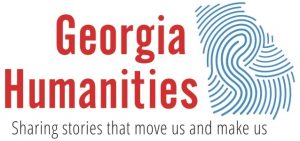
by Arden Williams

by Arden Williams
You perform what you call “non-boring history” programs in costume in schools and libraries. That’s quite a career change from being an academic historian!
Yes, yes it is! I started working with kids ten years ago, when I had just got tenure at Georgia Southern University, and I wanted a break from the academic hamster wheel. My goal was to create something that would reach young people with a better understanding of history as change over time, and the end result was TimeShop, a day-long event which used artifacts, foods, sound effects, smell effects, humor, and most of all, imagination to turn the university conference center into a small town in England during World War II.
By the second year, nearly 200 kids were coming to TimeShop over a weekend, and about forty undergrads of all majors played costumed characters and tour guides. The Associated Press profiled my work with TimeShop, and I discovered that I had connected not only the children but the college students with real history in creative and enjoyable ways. We even held a highly successful “TimeShop for Adults” evening event for the community.
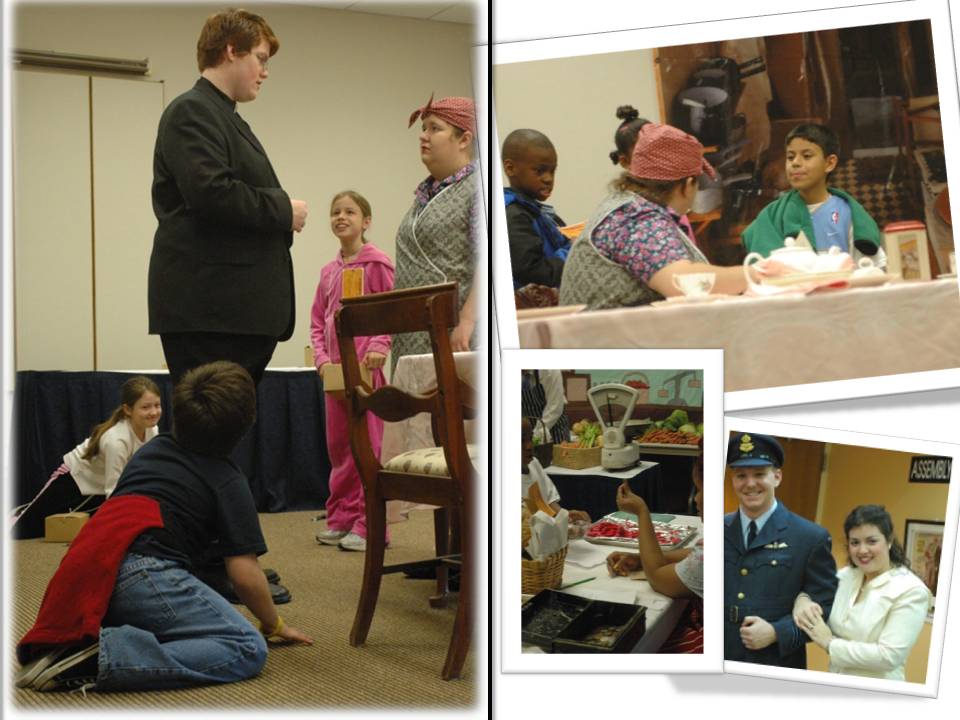
Scenes from TimeShop: Wartime England, Statesboro, GA
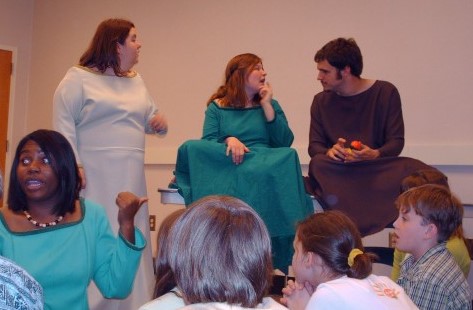
Annette's Student Volunteers play storytelling pilgrims at TimeShop: Medieval France, Statesboro, GA
In 2008, I quit my job at Georgia Southern and became a full-time missionary for history, looking for ways to deepen kids’ and adults’ understanding of my subject. For a couple of years, I led Camp Snipesville, summer camps for ages 8-12 in south Georgia, including weeks on themes that ranged from the Great Depression to Medieval history. Fun though these were, I became concerned that I was not reaching a broad enough range of kids with them.
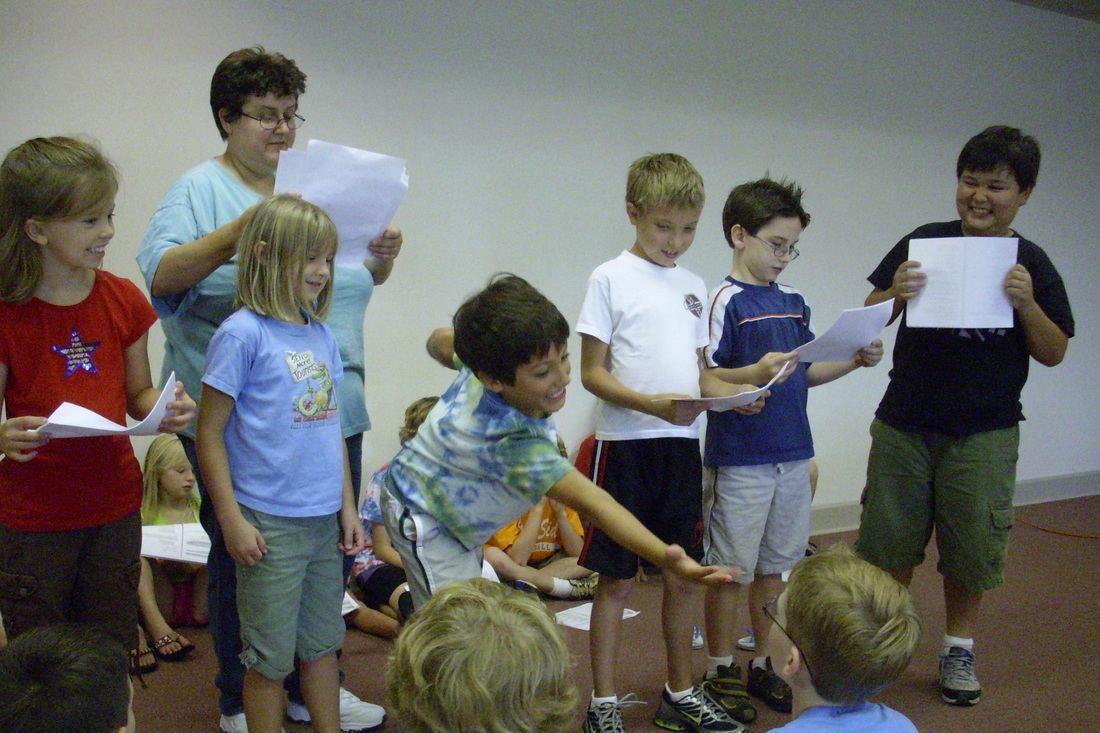
A Medieval Mystery Play, Camp Snipesville: Medieval Mayhem, Statesboro, GA, 2010
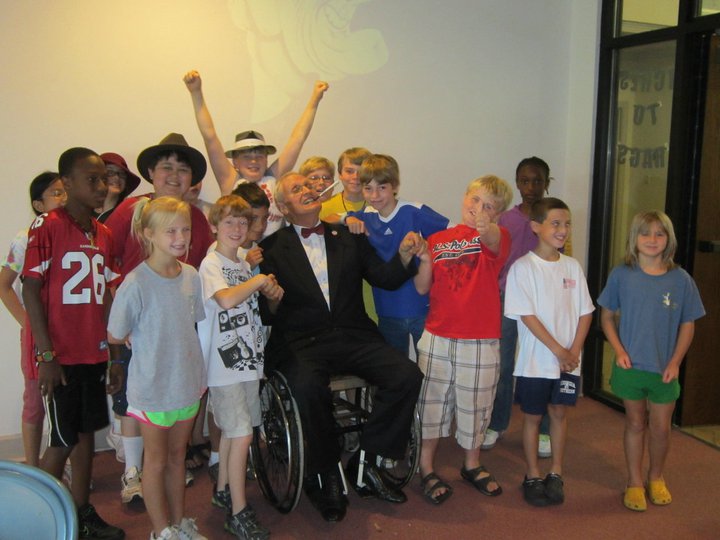
With President Roosevelt, Camp Snipesville: Riches to Rags (1920s and 1930s)
I created one-woman shows that I could take to elementary and middle schools and libraries: In Could You Be A World War II Kid? for example, I arrive in costume, and use multimedia, acting, jokes, and lots of Socratic method to get them excited and thinking about British children’s experience during the war and, by extension, the American Home Front. I entertain, but I am also giving college lectures for kids, helping them connect the past to their own lives, which is the most important thing that historians do. I’m also demonstrating to everyone that kids are eager to grapple with substantive ideas.
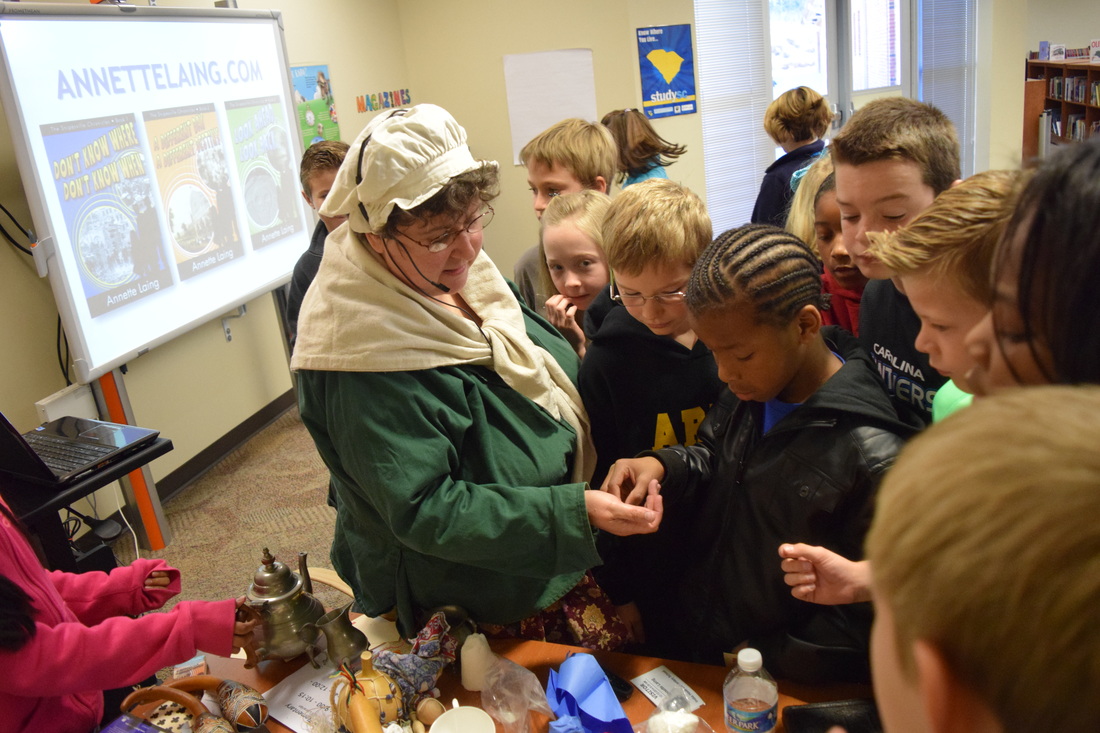
Could You Be A Colonial Kid? India Hook Elementary, Rock Hill, SC
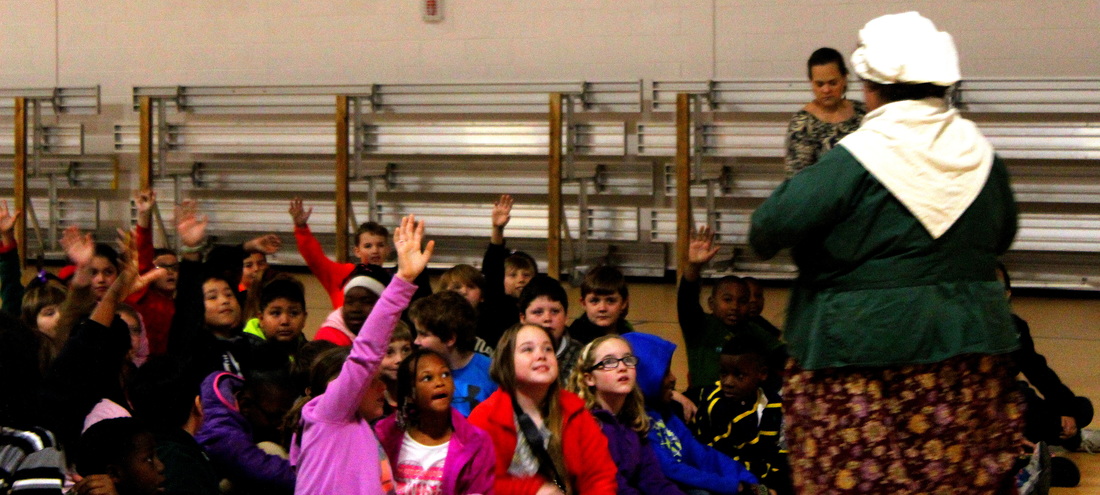
Could You Be A Colonial Kid? Spencer Elementary, Tifton, GA
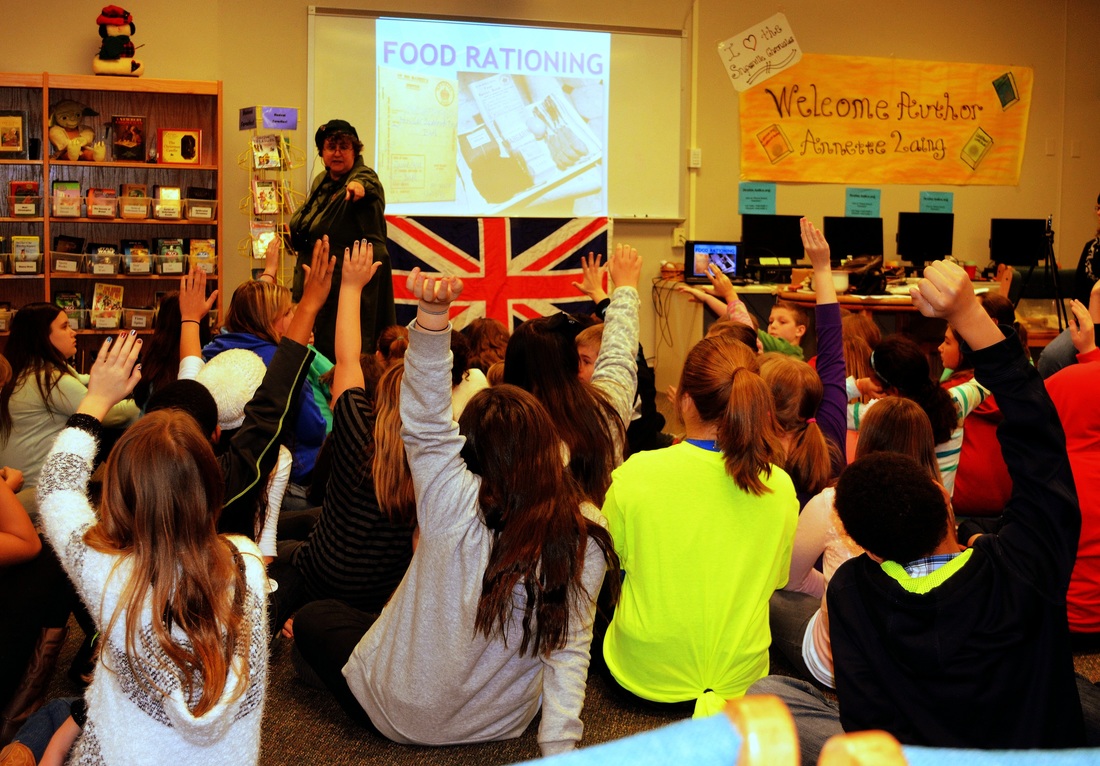
Could You Be A World War II Kid? Flowery Branch Elementary, Flowery Branch, GA
Tell us about your books.
My time-travel novels, The Snipesville Chronicles, reach more kids than I ever could in person, and are definitely far more readable than my academic work! The first, Don’t Know Where, Don’t Know When, grew out of TimeShop. It’s the story of Hannah, Brandon, and Alex, who find themselves transported from a small town in 21st century Georgia to England in 1940. I followed this up with A Different Day, A Different Destiny, set in Britain’s Industrial Revolution and antebellum Georgia, and Look Ahead, Look Back, which takes the three to the year 1752.
What I’m really writing about in my novels, along with terrific adventure and interesting characters, is historical change. Most people think of history as a series of events and famous people, but it’s also about the differences between how people thought and acted in the past, and how we think and act today. I discovered that, quite without realizing, I'm modeling historical thinking and literacy, the way that historians think.
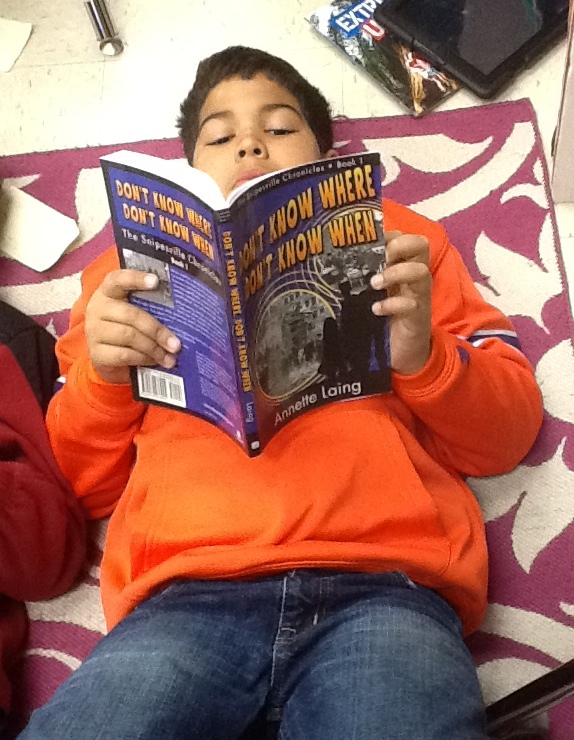
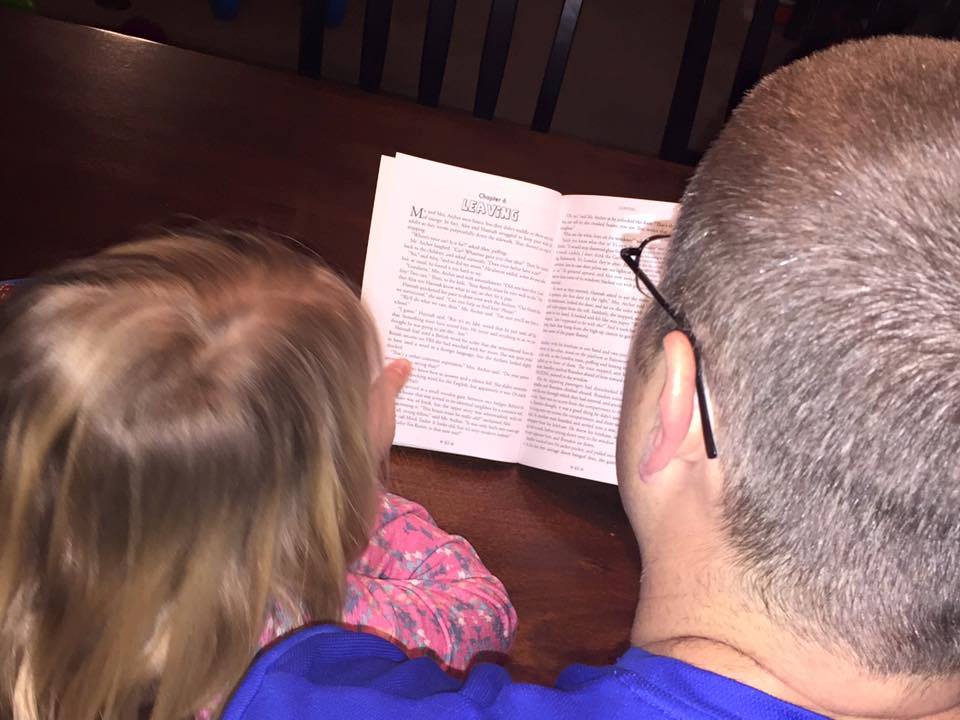
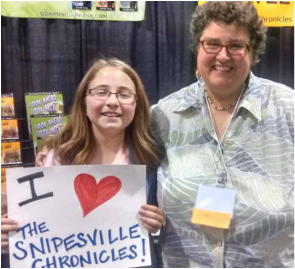
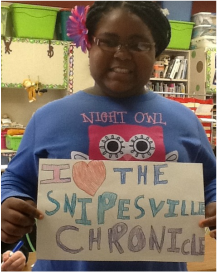
Do you speak to adults as well as kids and teens?
I do! I speak at teachers’ and librarians’ conferences, and to any group interested in learning about my work. A large part of my goal is to increase elementary and middle school teachers’ awareness of history as a discipline, to cut through the noise of eduspeak and debate over curriculum, to offer an insight into the excitement of history for teachers and students alike. Among my most exciting gigs so far was giving two days of teacher workshops at the Jimmy Carter Museum in Plains.
You have lived in Georgia for a long time, but you are originally from Britain. How does your background influence your work?
I used to joke with my students in my Revolutionary America class that in *my* version of the American Revolution, the Brits win! Seriously, I don’t think it’s a coincidence that I have always been fascinated by the cultural linkages between America and Britain in the 18th century. But the greatest influence that my personal background has on my work is not on my scholarship, but on my writing and my work with kids and teens.
I have been very much influenced by the style of British history books and programs aimed at young people, which have been very successful in getting kids interested, giving them a strong sense of change over time, and igniting their passion to learn more.
How has Georgia Humanities supported your work?
Oh, I can’t overstate this. Georgia Humanities has supported my work since the beginning, with TimeShop, and its support was essential to us receiving national recognition. Now that I am a solo act, teachers can apply for grants to bring me to schools and libraries.
But your most important support for my work is moral. From the start, Georgia Humanities recognized that what I do involves so much more than putting on a costume and entertaining kids. My entertaining approach is inextricably linked with my serious purpose, to inspire kids and teachers to be passionate about thinking deeply about the past. I owe a huge shout-out especially to GHC President Jamil Zainaldin and you, Arden Williams, who have always understood and encouraged my vision of a modern, kid-friendly humanities program.
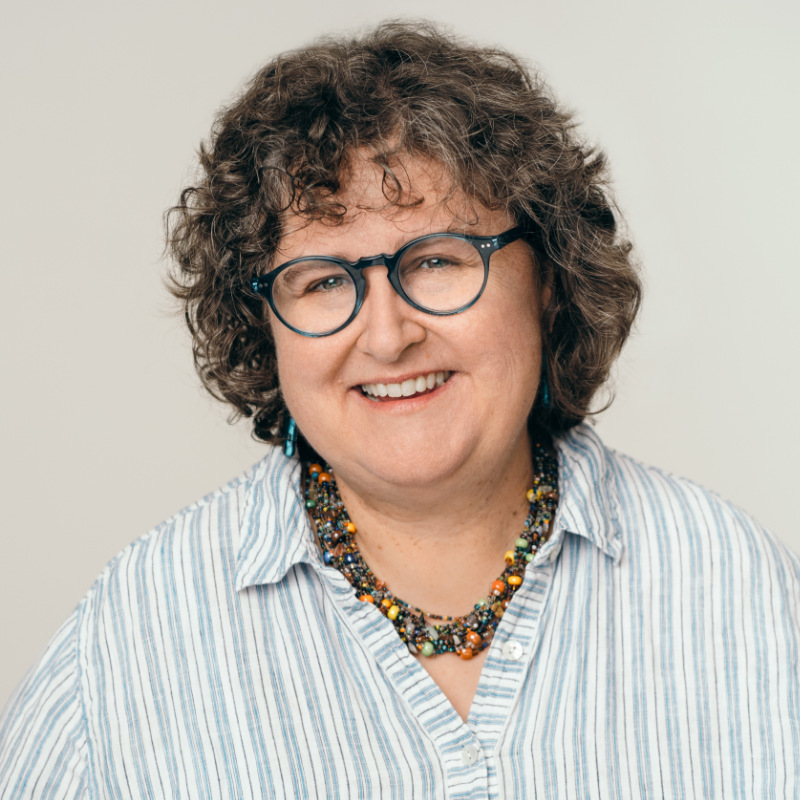
Sign up for Annette's Newsletter